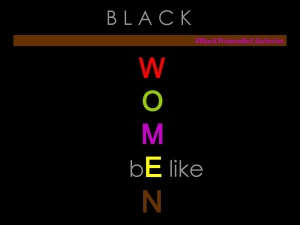Withering Heights
Written by Miriam Jerotich
Whenever Lucy thought about her husband Brian, her lower abdomen flared up in pain. It wasn’t the kind of pain she had on the twenty-third of every month. This pain coiled like a web of liana around a tree, slowly choking the nerves in her lower back. In the first five years of her marriage, she had endured the pain by taking pills, before graduating to injections in the ensuing years. Despite her efforts, the pain lingered on like a malaria fever, leading her to place ice packs on her back in a bid to lessen the pain. Her back intensified its fiery dance as soon as Brian left on Sundays to visit his other family. When the first pangs clung to her muscles, she retreated to their bathroom for the ice ritual. Arching her back towards the ceiling, she jutted out her breasts to the ceiling in a yoga-like pose, begging the icy rivulets to saturate the pain.
Only recently, her sister Neema had initiated her into a new ritual – aloe vera. “Drink this every morning. It’s bound to cure the pain,” she had said while handing her a jar of the drink. It had been two weeks since she began the aloe vera ritual, drinking two tablespoons of the bitter concoction every morning. She drank only because Neema asked her to. Deep in her heart, Lucy knew there was no cure for some pains. The thought had occurred to her two years before, when she saw the black springy hair and Brian’s bulbous nose on her newborn stepson, in a photo stuffed in Brian’s wallet. She had concluded then that some pains just lay embedded in the body and soul. Forever.
But one afternoon, a new thought crawled into Lucy’s mind as she sat having coffee with her sister in the Dorman’s Café outside Karen Crossroads. If she were honest with herself, she would admit that this new thought was quite old, and had only lain in waiting; observing for the perfect moment to lay siege and never let go. As Neema busily talked, Lucy watched as a white Land Rover with red diplomatic license plates drove into the shopping center. Young laughing wazungus trooped out of the car, and sauntered barefoot to a group of curio sellers seated outside the mall. Her temple knotted into a set of wrinkles as she stared at the white adventurers, gazing at their dusty heels slapping against the concrete, at the tourist curio seller who jostled with them to buy tiny drums in various safari-themed colors. The carefree nature of their gait itched her heart. She hated this word carefree, loathed it even more because she saw herself in the word — the childless woman who had watched all the while as the world changed, remaining constant, tied down by a desire she couldn’t explain to herself, longing to hold a newborn in her arms, wondering why she still stayed.
“Did you read the book I gave you?” Neema interrupted her thoughts.
Neema always tried to convince her sister to read more books. She constructed her life around books, her response to the early death of their mother, when she had to step up to care for her younger sister. It had begun with her books in school, then novels, then anything she could lay her eyes on. People would look at her and comment on how she had successfully defied every stereotype about a no-book-reading culture in Kenya. But Lucy looked beyond all this, seeing the reason behind her obsession. It wasn’t a means of running away from the real world. It was embracing a world that could be, and working to live it out in the real world. And somehow, Lucy thought, her sister had won. She was married to a doctor now. A man who knew the right books, picked out the perfect reads. They didn’t have kids, but they had each other.
“Here’s the book you gave me,” Lucy said, handing back her sister the copy of Purple Hibiscus by Chimamanda Ngozi Adichie.
“Did you like it?” Neema asked.
Lucy looked at her sister folding back the book into her bag, waiting for a perfunctory answer to her question, the normal “yes”. Her efforts and questions were like her faith. How she tried to bring around her sister to church. Lucy thought how they were both childless women – one finding solace in the arms of religion, the other living through rituals to subvert the searing pain. As each stain of blood signaled the end of a life that never was, each woman ran deeper into the arms of her own coping mechanisms. More tithes to the church, more elaborate rituals, more innovative inventions.
“You know, Mama kills Papa in the end. She pays him back for all the beatings, the punishment, the miscarriages…” Lucy replied.
“Yes, sister,” Neema cajoled.
“I see me in her,” Lucy said moments later.
As they faced each other, they both knew the encoded message. The turning point had come, the one where the legend of Brian Malezi came to an end. And when Lucy finally walks away, she will feel the pain in her lower back flare up again, maybe because such pain can never go away. But the pain will be different. Sweet. Like making love for the first time; like the world of Brian dissolves into the past. Forever.
©Miriam Jerotich 2013 Author’s blog: http://chakutumaini.blogspot.com/




You say…